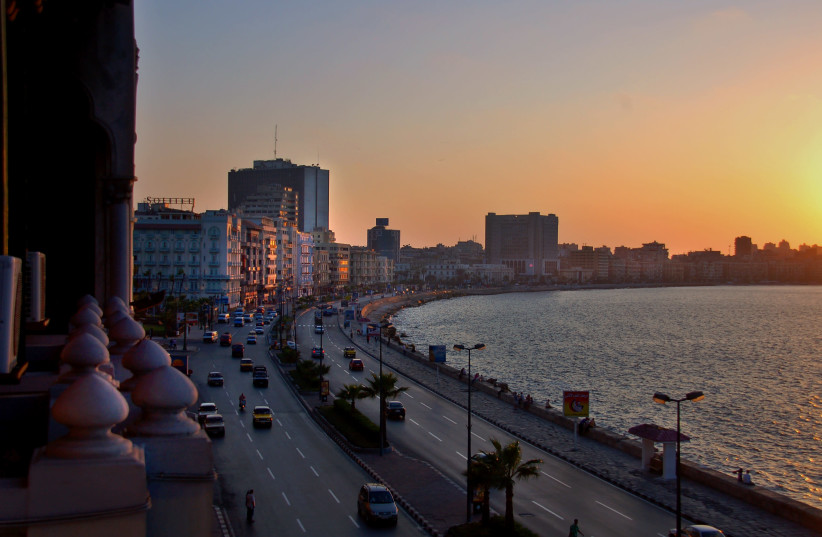In 2002 there was “Horseman without a Horse, an antisemitic dramatic depiction of the implementation of the Protocols of the Elders of Zion.
By HERB KEINON

If it’s Ramadan, then it must be time for an antisemitic or anti-Israel series on Egyptian television.
In 2002 there was Horseman without a Horse, an antisemitic dramatic depiction of the implementation of the Protocols of the Elders of Zion.
Ramadan in 2013 featured Khaybar, a drama showing relations between Jews and Muslim in Medina that led to the Prophet Muhammad expelling the Jews from Khaybar, an oasis in the western Arabian Peninsula. In 2017 the show Kalabsh featured an American Jewish woman using her guiles to get an Egyptian diplomat to harm Egyptian national security. And in 2019 the Egyptian viewer was treated to Alzyb’a, which portrayed Jews as being in control of the world.
One exception was in 2015, when a series aired called The Jewish Quarter did not dehumanize the Jews to the degree expected, something that led to praise for the series in some Western press, but criticism inside Egypt itself.
In other words, during Ramadan – the time when television viewing is at its peak – the Egyptian viewer is exposed nightly to shows featuring popular actors that demonize Jews and Israel.
And this year is no exception, with a private Egyptian station airing during Ramadan a 30-episode show called El Nehaye (The End) that tells of a future war to liberate Jerusalem, the destruction of Israel and the dispersion of its Jews to their countries of origin.
In other words, not exactly the type of fare that promotes peace.
A Foreign Ministry spokesman was quoted as saying the show is “unfortunate and totally unacceptable, especially between countries that have a peace agreement between them for the past 41 years.”
It is unclear, however, whether the Foreign Ministry – or Israel – plans to do more on this matter than issue a rather bland statement.
But it could, and it has grounds to do so under the 1979 Egypt-Israel Peace Treaty.
According to Annex III, Article V of the 1979 peace treaty, “The parties recognize a mutuality of interest in good neighborly relations and agree to consider means to promote such relations.” The article continues: “The parties shall seek to foster mutual understanding and tolerance and will, accordingly, abstain from hostile propaganda against each other.”
The Egyptian media is highly dependent on the government, and shows like these could not be aired without at least a wink from Cairo.
Which raises the question, What is Egyptian President Abdul Fattah al-Sisi doing? Egyptian-Israeli security ties are as close as they have been for years, and the Egyptian president has been keen on cultivating good ties with the American Jewish community to assist him in Washington. Then why allow television fare during the most widely watched month on the calendar that demonizes and delegitimizes Israel?
Why? Because old habits die hard. Because this was the modus operandi adopted by former president Hosni Mubarak – Mr. Cold Peace – that has taken solid root in the country: Preserve the peace with Israel at a governmental and military level because it is beneficial for Egypt, but do nothing to cultivate an atmosphere of peace among the people.
More than that, allow anti-Israel propaganda in the mainstream media as a way for Sisi to gain legitimacy among a public that harbors no affection for the Jewish state.
And the media plays to those anti-Israel sentiments: “The End” is simply a case of giving the people what they want to see.
Israel and Egypt marked 40 years of peace last year, a remarkable achievement, considering all that the agreement has had to withstand over those years. It has lasted because the agreement very much serves the interests of both sides. But four decades later, the peace – as “The End” clearly shows – has not seeped down to the masses, with Egyptians still widely viewing Israel in an extremely negative light and harboring the hope that the Jewish state will be destroyed and its people scattered to the four winds.
That this show constitutes “entertainment” for the Egyptian masses is troubling. Israel’s protests alone are unlikely to get the Egyptian government to curb this type of fare. Cairo may, however, be more attentive if protests came not only from Jerusalem, but from Washington as well – something the Foreign Ministry would do well to keep in mind.
Content retrieved from: https://www.jpost.com/middle-east/rotten-ramadan-tv-fare-on-egyptian-broadcast-channels-analysis-626004?fbclid=IwAR2bNJXtydDimm-YxJaLMyvO2Vm4KB0vYARa01nKkidGK2gLQhA6Ewr0lYY.